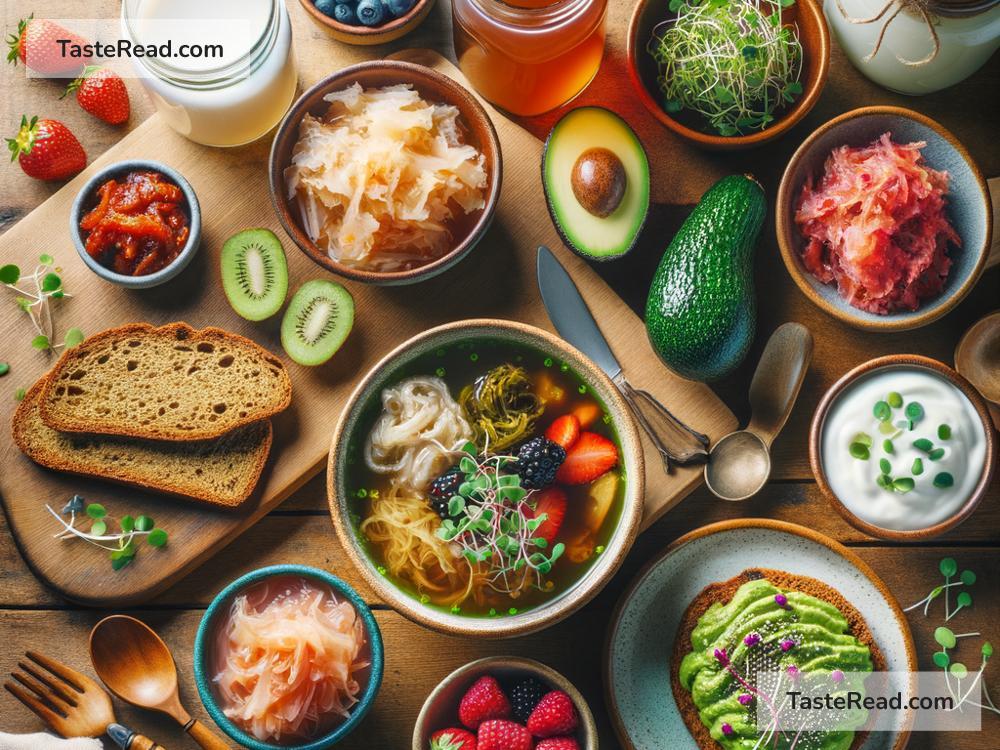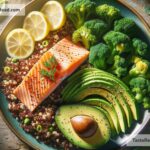Foods for Gut Health: Eat Your Way to a Happy Belly
Your gut does more than just digest food—it’s the powerhouse of your body, responsible for absorbing nutrients, supporting your immune system, and even impacting your mood. If you’ve ever heard the phrase “trust your gut,” it might hold more truth than you’d think! Having a healthy gut can improve the way you feel physically, mentally, and emotionally. But how do you keep your gut in tip-top shape? The answer is simple: eat the right foods.
Here, we’ll discuss some gut-friendly foods that can help your digestive system stay happy and healthy.
Why Gut Health Matters
Before we dive into the foods, let’s talk about why gut health is so important. Your gut is home to trillions of bacteria that form what’s called the “gut microbiome.” These bacteria play a big role in digestion, helping you break down food and extract nutrients. A balanced gut microbiome helps support your immune system, makes vitamins critical for your body, and even impacts your mental health through the gut-brain connection.
When your gut microbiome is out of balance, you might experience bloating, constipation, diarrhea, or even more serious issues like inflammation and chronic health conditions. Eating the right foods can nourish your gut bacteria and improve overall health.
Foods That Boost Gut Health
1. Fiber-Rich Foods
Fiber is like food for your gut bacteria. When you eat fiber, your bacteria break it down and produce compounds that keep your body running smoothly. Foods high in fiber can help regulate digestion, prevent constipation, and feed the good bacteria in your gut.
- Examples: Whole grains (like oats, quinoa, and brown rice), legumes, beans, lentils, fruits (like apples, pears, and bananas), and vegetables (like broccoli, carrots, and kale).
2. Fermented Foods
Fermented foods are packed with probiotics—live bacteria that help restore the balance of your gut microbiome. These foods are like putting friendly soldiers in your gut to fight off harmful bacteria. Eating fermented foods regularly can improve digestion and even help reduce inflammation.
- Examples: Yogurt (with live cultures), kefir, sauerkraut, kimchi, miso, and kombucha.
3. Prebiotics
Prebiotics are a type of fiber that feeds your gut bacteria and helps them grow stronger. Think of prebiotics as the fertilizer for your gut garden. They help probiotics (the friendly bacteria) thrive and do their job more effectively.
- Examples: Garlic, onions, leeks, asparagus, bananas, and dandelion greens.
4. Omega-3 Fatty Acids
Omega-3 fatty acids are healthy fats that help reduce inflammation in the gut. They’ve also been linked to promoting diversity in the gut microbiome, which is a sign of a healthy digestive system.
- Examples: Fatty fish like salmon, mackerel, and sardines; flaxseeds, walnuts, and chia seeds.
5. Bone Broth
Bone broth is rich in collagen and amino acids that help repair the lining of your gut. It’s often recommended for people with leaky gut syndrome, a condition where the walls of the intestines become damaged and allow toxins to enter the bloodstream. Bone broth is easy to digest and contains nutrients like calcium, magnesium, and phosphorus.
- How to Use It: Sip it on its own as a warm drink or use it as a base for soups and stews.
6. Fruits and Vegetables
Fresh fruits and vegetables are great for your gut because they’re full of vitamins, minerals, and antioxidants that support digestion and overall health. Many fruits and veggies are also high in fiber, which we already know is fantastic for gut bacteria.
- Examples: Berries, apples, sweet potatoes, spinach, and zucchini.
7. Nuts and Seeds
Nuts and seeds provide healthy fats and fiber that promote gut health. They’re also rich in vitamins and minerals that keep your digestive system strong.
- Examples: Almonds, walnuts, chia seeds, flaxseeds, and sunflower seeds.
8. Herbs and Spices
Certain herbs and spices can calm inflammation in the gut and support digestion. For example, ginger helps alleviate nausea, turmeric fights inflammation, and fennel can ease bloating.
- Examples: Ginger, turmeric, peppermint, fennel, and cinnamon.
Foods to Avoid
It’s not just about what you eat—it’s also about what you don’t eat. To support a healthy gut, try to limit foods that can throw off your gut bacteria or irritate your digestive system. These include:
- Processed foods (like chips and sugary cereals)
- Excess sugar and artificial sweeteners
- Fried foods
- Excess alcohol
- Red meat in large quantities
Small Steps for Big Changes
Improving your gut health doesn’t happen overnight, but small, consistent changes to your diet can make a big difference. Start by incorporating more gut-friendly foods into your meals, and pay attention to how your body reacts. You might notice that you feel less bloated or have more energy, and over time, your gut microbiome will grow stronger.
Remember, a healthy gut is the foundation of a healthy body. What you eat matters, so treat your gut like the amazing machine it is. Happy eating—and happy gut!


